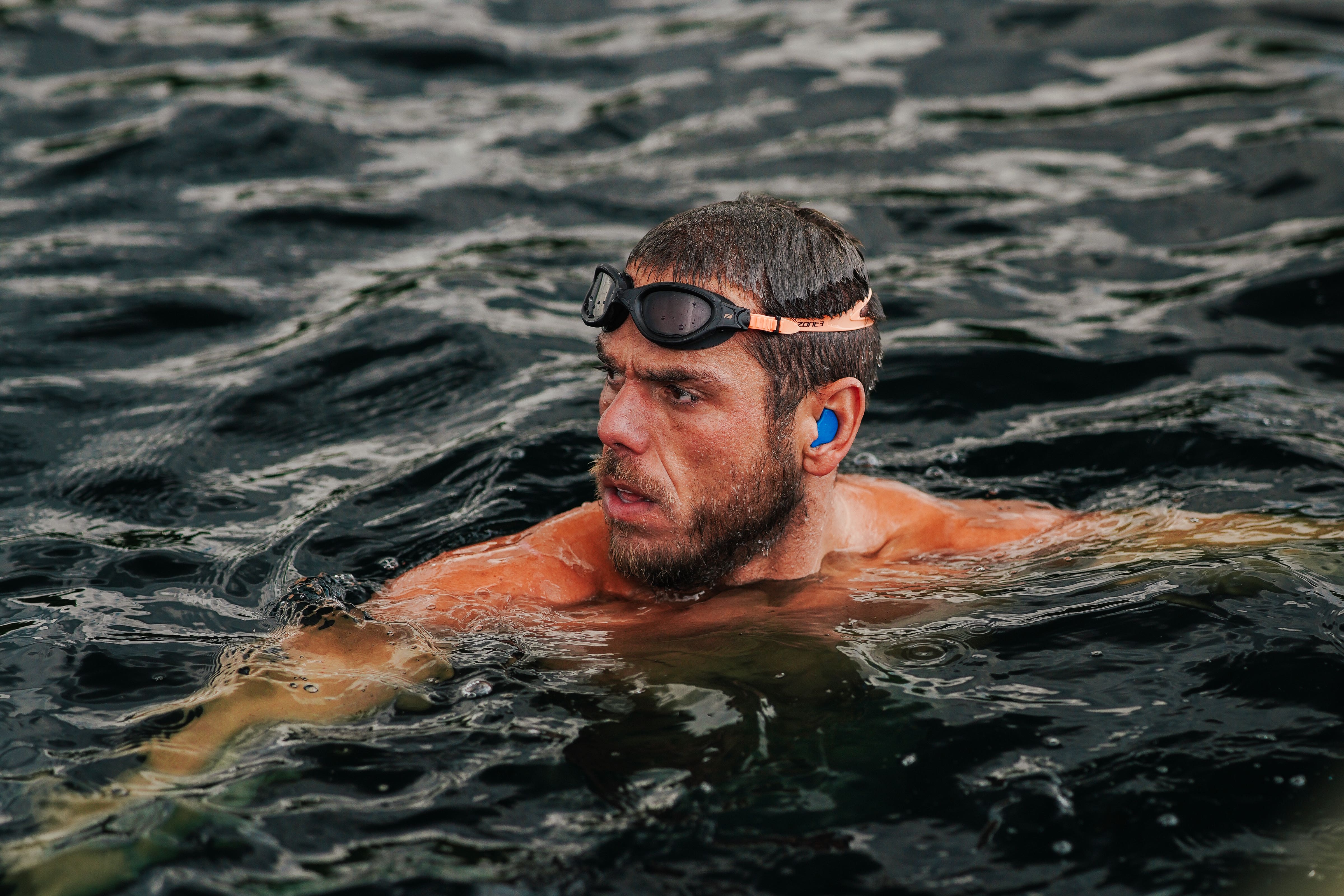Ultra-swimmer aims to break record for longest distance swum in a pool in a week
Ross Edgley is aiming to cover 223 miles across seven days.

Your support helps us to tell the story
From reproductive rights to climate change to Big Tech, The Independent is on the ground when the story is developing. Whether it's investigating the financials of Elon Musk's pro-Trump PAC or producing our latest documentary, 'The A Word', which shines a light on the American women fighting for reproductive rights, we know how important it is to parse out the facts from the messaging.
At such a critical moment in US history, we need reporters on the ground. Your donation allows us to keep sending journalists to speak to both sides of the story.
The Independent is trusted by Americans across the entire political spectrum. And unlike many other quality news outlets, we choose not to lock Americans out of our reporting and analysis with paywalls. We believe quality journalism should be available to everyone, paid for by those who can afford it.
Your support makes all the difference.An ultra-swimmer is aiming to break the world record for the longest distance swum in a pool across one week in the name of science, which he described as “a noble cause”.
Ross Edgley, from Alderley Edge in Cheshire, is aiming to swim 223 miles (360 km) in a pool in seven days, which equates to swimming 36 marathon swims (10 km).
The challenge, which will take place at the Best Centre in Mallorca, Spain between May 19 and May 26, will see the 38-year-old swim for an average of 15 to 18 hours per day while working with sports scientists to determine how his calorie intake impacts his swimming.
Mr Edgley said he lost weight during training, dropping from 102kg to 80kg, describing it as a difficult but necessary part of the challenge.
He told the PA news agency: “It’s just the idea of kind of suffering, but for a noble cause.
“I’m going to feel like a goldfish and it’s making peace with that, so this is going be really tough.”
He said losing weight and dieting has been “miserable”.
“I don’t get ‘hangry’, I get ‘sangry’ where I just get sad,” he said.
The ultra-swimmer said he thinks about Greek mythology during his swims, referencing the myth of Sisyphus who was ordered by the gods to repeatedly push a boulder up a hill.
Whatever happens afterwards, the world record is nice, but that is secondary. This could be such a unique study that we hope to get published as well
He said: “I think in some ways the dieting, the tediously swimming up and down seven days… that is my boulder, as it were.
“It’s weird that your mind goes to some strange places. People say, ‘what do you think about?’ and I’m like, ‘Greek mythology’.”
The main part of the research, supported by PhD Nutrition, a brand selling protein products, is to determine how much food an endurance athlete can eat while maintaining their performance, which is an area Mr Edgley believes is seldom considered during training.
“We’re looking at the upper limit of what the human digestive system can actually process during endurance sport,” he explained.
“Because that’s one thing that so often will stop some of the best athletes in the world. They will just physiologically implode from their digestive system because they’ve not trained it.
“It’s so interesting that I think that’s what this swim will come down to. It won’t be stroke rate or heart rate – it’s ‘can you keep eating and keep moving forward?'”
Mr Edgley is versed in long distance swimming after completing the Great British Swim, which saw him swim around Great Britain in 158 days, and he broke the record for the longest ever open water swim in Loch Ness.
The endurance athlete will be monitored by scientists every day throughout his challenge and described himself as a “guinea pig”.
“It’s been so interesting constantly looking at data,” he said.
“This whole swim has been so different because we can control the variables, it’s so data driven and it really is a scientific experiment first and foremost, and I’m the guinea pig.
“Whatever happens afterwards, the world record is nice, but that is secondary.
“This could be such a unique study that we hope to get published as well.”
Mr Edgley has thanked the public for their support on social media and hopes the results of the research will help people in their health journeys.
He said: “What we’re trying to do is so extreme. It’s outside of the realms of conventional sport science.”